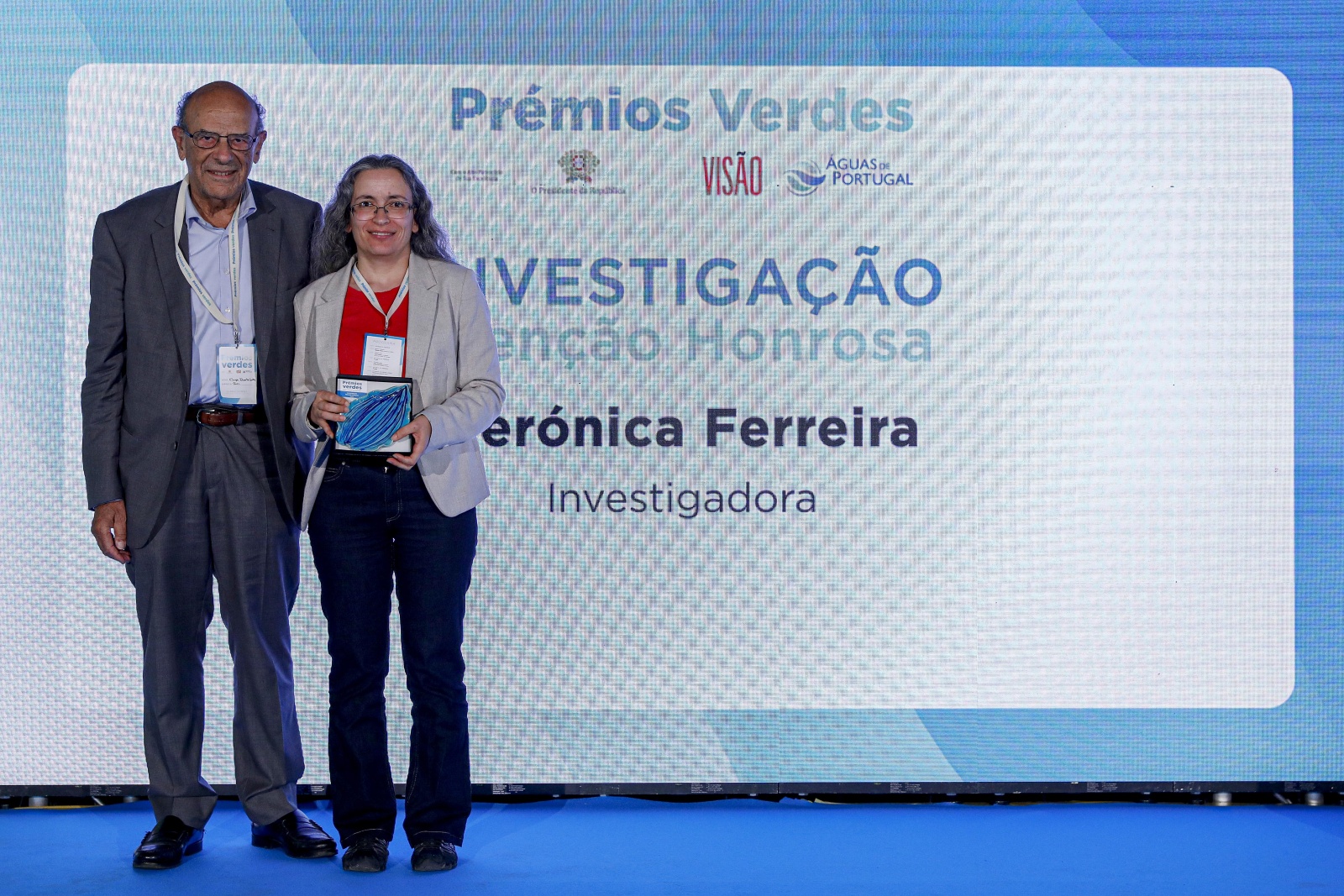A researcher from MARE was honored at the Green Awards for her work on streams
 Verónica Ferreira, researcher at the Faculty of Sciences and Technology of the University of Coimbra, from MARE - Center for Marine and Environmental Sciences, and ARNET - Aquatic Research Network Associated Laboratory, has been honored with the "Green Awards" in the category of "Research Award."
Verónica Ferreira, researcher at the Faculty of Sciences and Technology of the University of Coimbra, from MARE - Center for Marine and Environmental Sciences, and ARNET - Aquatic Research Network Associated Laboratory, has been honored with the "Green Awards" in the category of "Research Award."
The initiative, promoted by Visão magazine in partnership with the Águas de Portugal Group and under the patronage of the President of the Republic, Marcelo Rebelo de Sousa, aims to "recognize, promote, and reward good practices and examples of excellence that stand out for their contribution to the environment and sustainable development within the context of the current climate emergency."
This distinction recognizes the researcher's work in the study of streams, particularly in assessing the effects of environmental changes on communities and aquatic processes. Environmental changes that have received more attention include "nutrient enrichment of streams, water warming, and changes in native forests (such as replacement by eucalyptus monocultures, invasion by exotic species, and diseases resulting from infection by pathogens)," according to Verónica Ferreira.
Understanding the effects of environmental changes on streams allows for "identifying situations in which these ecosystems are more vulnerable, proposing possible mitigation measures, providing the best scientific evidence to support management decisions, and raising awareness in society about the need to protect and restore these ecosystems," says the researcher.
Studying streams is importante due to "being reservoirs of biodiversity, crucial sites in the water, carbon, and nutrient cycles, as well as influencing the communities and processes that occur in larger rivers and even coastal areas. Since streams are small, they are highly susceptible to human activities. If they stop functioning properly, since they're the majority of watercourses in a river basin, they can negatively affect downstream communities and the functioning of water bodies," explains the researcher.
